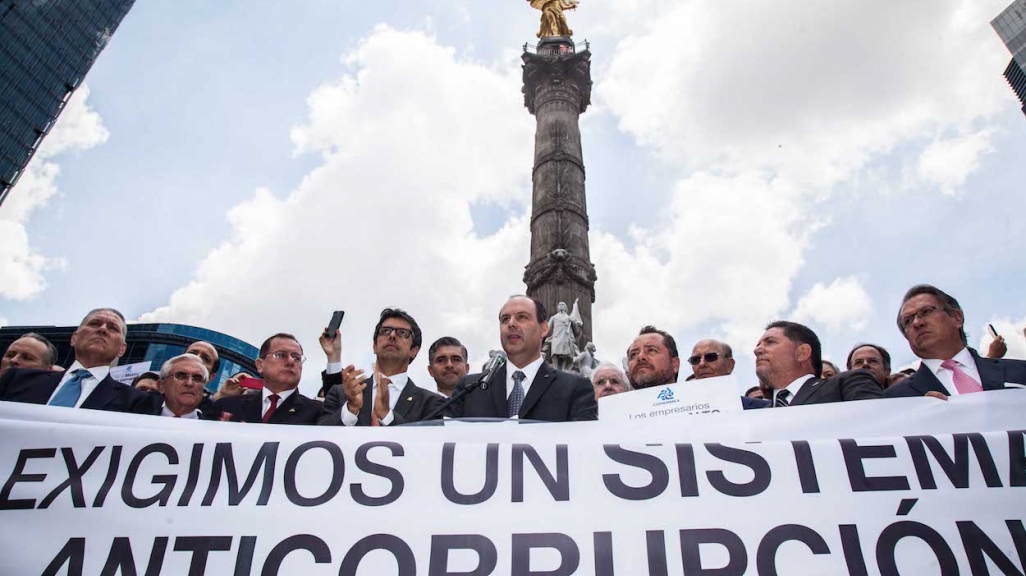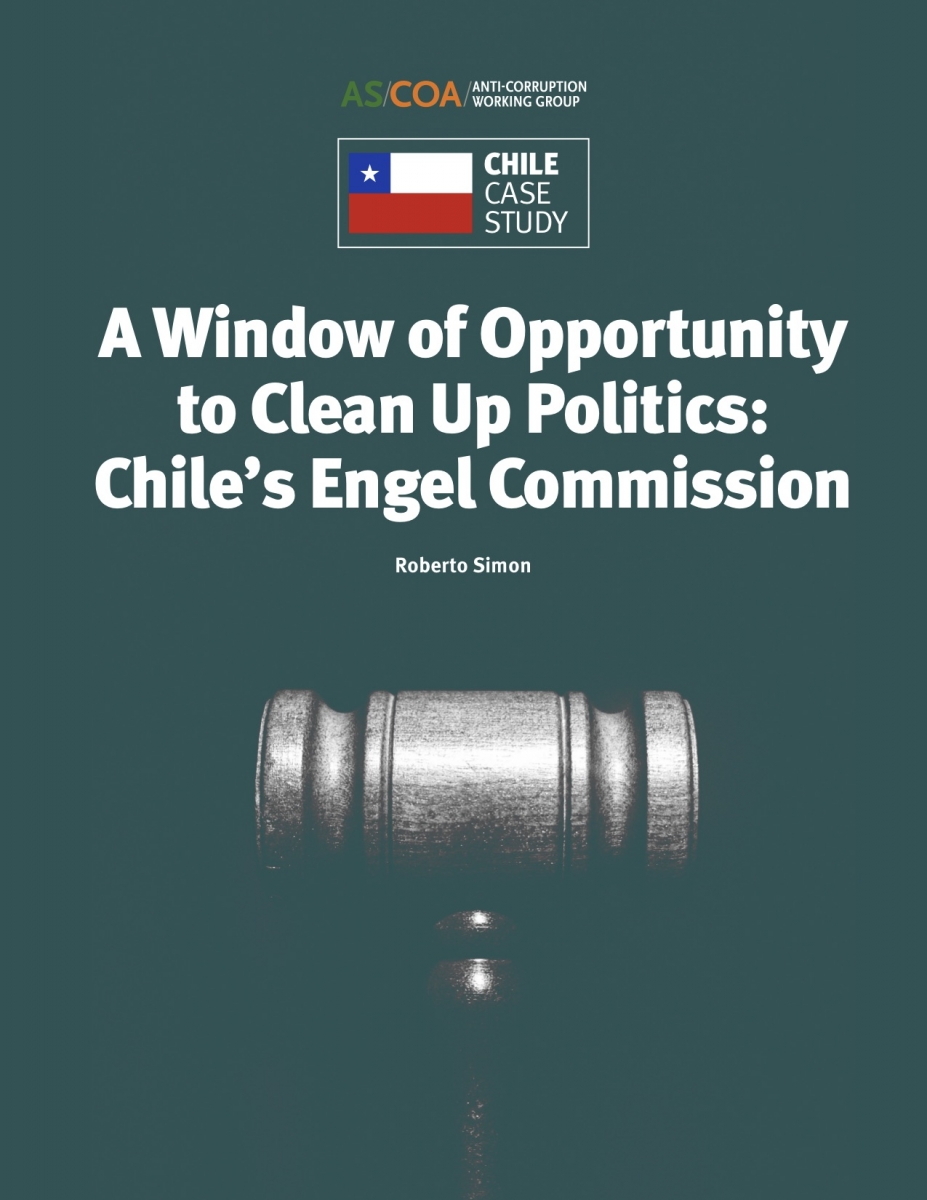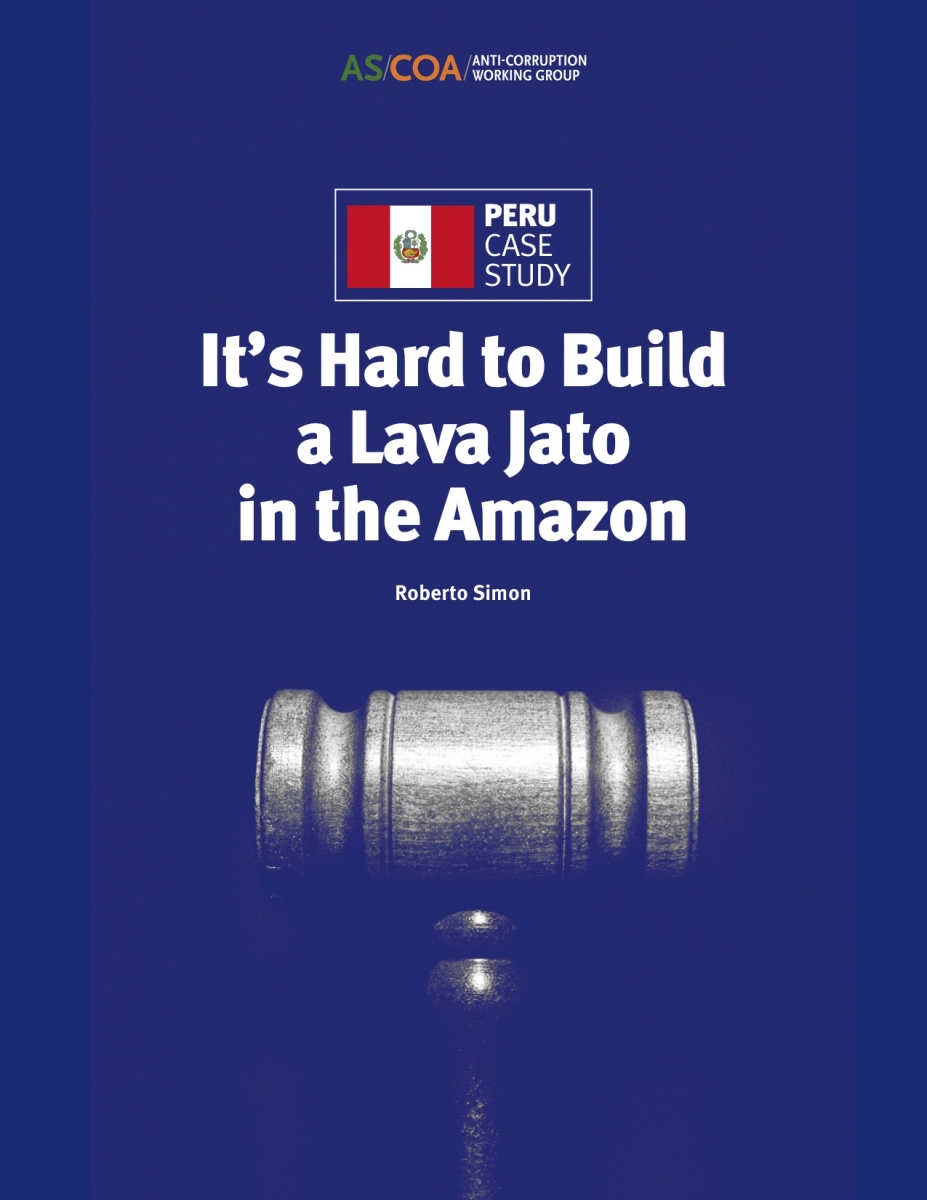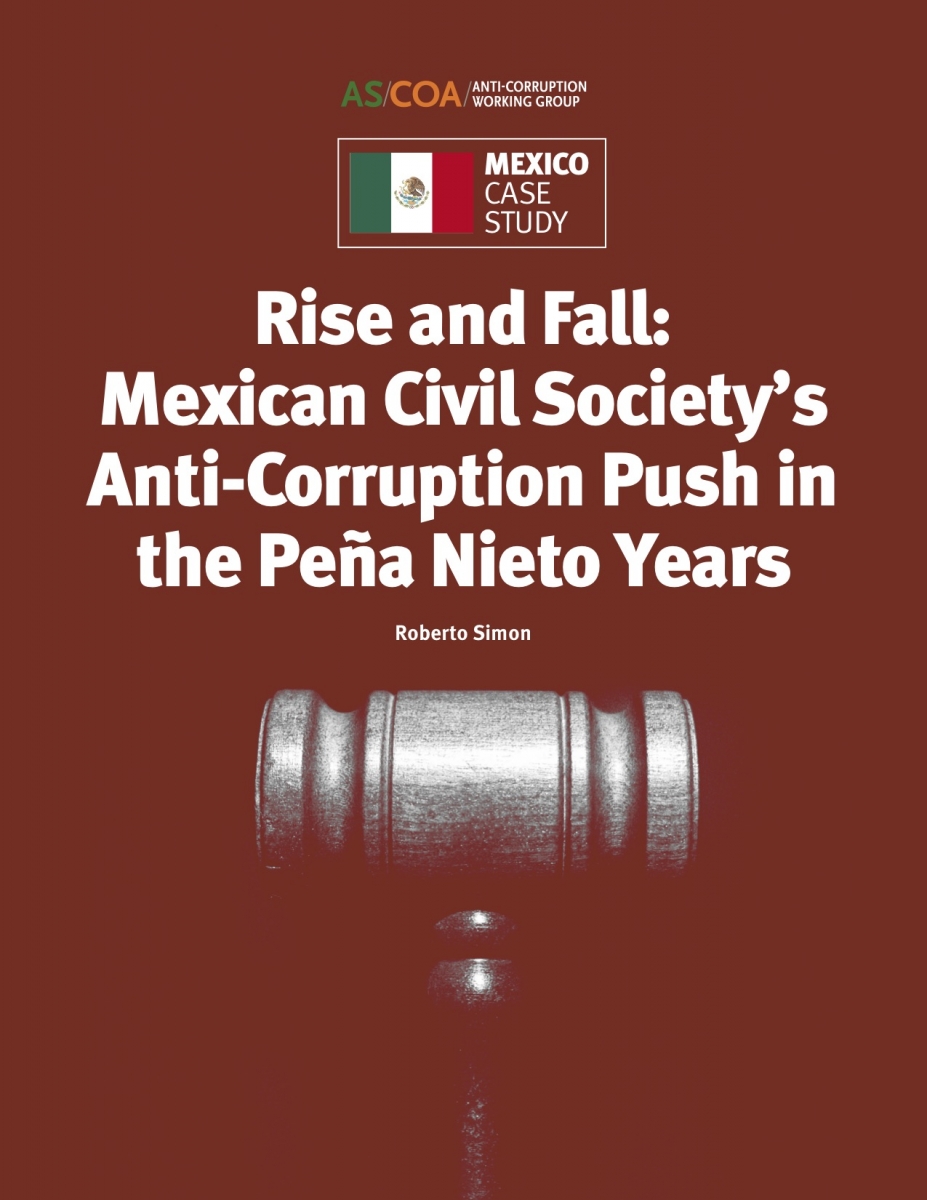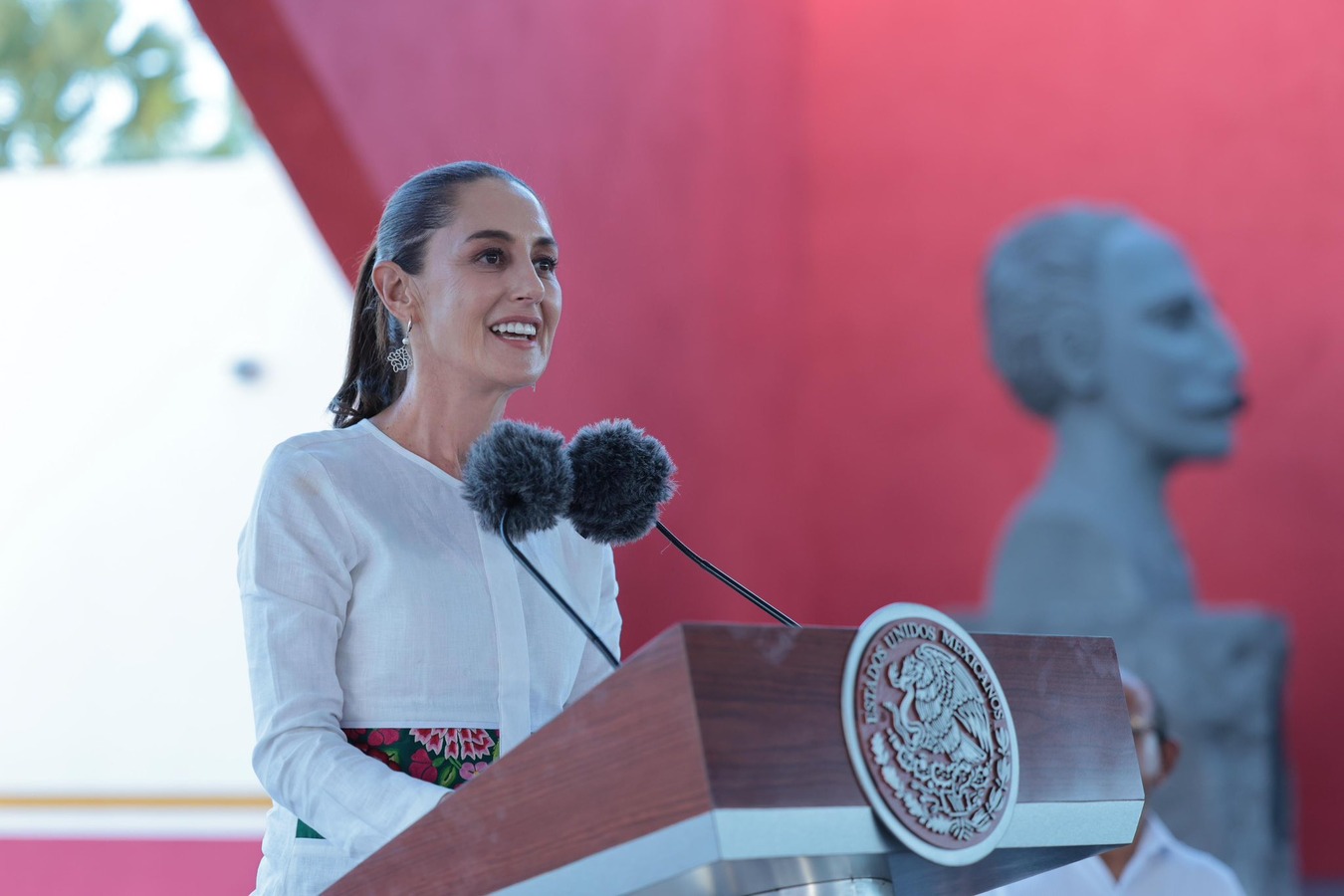Anti-Corruption Case Studies Provide Lessons for Post-Pandemic Latin America
Anti-Corruption Case Studies Provide Lessons for Post-Pandemic Latin America
Can the pandemic become an opportunity to pass critical anti-corruption reforms? Three case studies by AS/COA’s Anti-Corruption Working Group provide critical insights.
Can the pandemic become an opportunity to pass critical anti-corruption reforms?
The answer will be determined over the next months and years, however, a series of three case studies by AS/COA’s Anti-Corruption Working Group provides critical insights into how COVID-19 could be used to push the region toward better governance, more transparency, and less impunity for corruption.
The case studies analyze three very different episodes in the fight against corruption in Latin America, with mixed results and different lessons.
- The Engel Commission in Chile: Chile embarked on an impressive anti-corruption reforms cycle following scandals involving campaign financing and President Michelle Bachelet’s son. How did it happen? Why this bold reform push was insufficient to regain Chileans’ trust in their democracy and politicians?
- Corruption at the local level in the Peruvian Amazon and its devastating consequences to the environment: An isolated prosecutor in Ucayali state decides to investigate an alleged corruption scheme involving the massive sale of fake land titles to private companies producing palm oil in the forest. While his colleagues in Lima are successfully moving against powerful political figures under the Odebrecht investigation, the Ucayali prosecutor faces all sorts of institutional and political roadblocks. How is corruption at the local level different from so-called “grand corruption” cases?
- The civil society-driven anti-corruption push in Mexico during the Enrique Peña Nieto administration: As Mexico faced embarrassing corruption scandals, a network of NGOs managed to shape the discussion toward critical reforms: first with the #3de3 campaign and later with the creation of the National Anti-Corruption System (SNA). But following initial victories, the Peña Nieto administration was able to undermine the new system, while corruption remained a critical topic for most Mexicans. What drove the rise and fall of this anti-corruption push? How did it create an environment ripe for Andrés Manuel López Obrador?
All three cases show that corruption scandals can severely undermine trust in democracy and politics. But under certain circumstances, they may provide a window of opportunity for progress and reforms. What will happen in the anti-corruption front following COVID-19 is still undetermined. But with increased pressure from public opinion, the right leadership and a few additional elements, Latin America could use the pandemic to move toward better governance and less corruption.
AS/COA’s Anti-Corruption Working Group (AWG) is an action-oriented network focused on producing concrete results and contributing to the reduction of corruption in Latin America. The AWG navigates Latin America’s evolving anti-corruption movement by convening the region’s top corruption fighters and corporate leaders who are determined to see the historic crackdown on graft continue.
For media inquiries or to speak with an expert on this topic, please contact Pia Fuentealba at mediarelations@as-coa.org.







